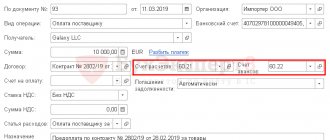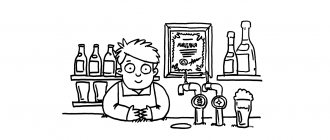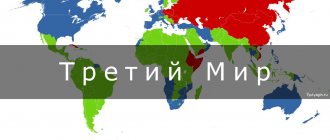Agreement on common measures of non-tariff regulation in relation to third countries
The Government of the Republic of Belarus, the Government of the Republic of Kazakhstan and the Government of the Russian Federation, hereinafter referred to as the Parties, seeking to create a single customs territory of the States of the Parties and provide favorable conditions for the effective functioning of the Customs Union, based on the need to pursue a coordinated foreign trade policy on the principles of non-discrimination, transparency, mutual benefit and protection of national interests, seeking to establish a uniform procedure for the import of goods from states that are not parties to this Agreement (hereinafter referred to as third countries), into the customs territories of the states of the Parties and into the common customs territory of the states of the Parties after its creation and export of goods from these territories, taking into account the need application of uniform non-tariff regulation measures in relation to third countries, guided by generally recognized principles and norms of international law, agreed on the following:
Article 1
Basic Concepts
The terms used in this Agreement mean the following:
“foreign trade activities” - activities related to transactions in the field of foreign trade in goods;
“foreign trade in goods” - export and (or) import of goods. The movement of goods from one part of the customs territory of the State of the Party to another part of its customs territory, if such parts are not interconnected by land territory, and also through the customs territory of a foreign state is not foreign trade in goods;
“single customs territory” - a territory consisting of the customs territories of the states of the Parties;
“import of goods” - import of goods into the customs territory of the state of the Party or into a single customs territory from the customs territories of third countries without the obligation to re-export;
“exclusive right to export and (or) import certain types of goods” - the right to carry out foreign trade activities in relation to certain types of goods, granted on the basis of a license issued by an authorized state executive body;
“quantitative restrictions on exports and (or) imports” - measures to quantitatively limit foreign trade in goods that can be introduced by establishing quotas;
“license” and (or) “permit” - special documents granting the right to export and (or) import goods;
“Licensing” is a set of administrative measures establishing the procedure for granting licenses and (or) permits;
“monitoring the export and (or) import of certain types of goods” is a temporary measure established in order to monitor the dynamics of export and (or) import of certain types of goods (automatic licensing);
“permitting procedure” - a procedure for carrying out foreign trade operations with certain types of goods, providing for licensing or the application of other administrative measures to regulate foreign trade activities, as well as customs control and customs clearance of such goods moved outside the customs territory of the State of the Party or outside the single customs territory;
“authorized state executive body” - an executive body of the state of the Party vested with the right to issue licenses and (or) permits:
“participants in foreign trade activities” - legal entities and organizations that are not legal entities, registered in one of the states of the Parties and created in accordance with the legislation of this state, individuals who have permanent or primary residence in the territory of one of the states of the Parties, who are citizens of this state or having the right of permanent residence in it or registered as individual entrepreneurs in accordance with the legislation of this state;
“export of goods” - removal of goods from the customs territory of the state of the Party or from a single customs territory to the customs territories of third countries without the obligation to re-import;
“non-tariff regulation measures” - a set of measures to regulate foreign trade in goods, carried out by introducing quantitative and other bans and restrictions of an economic nature.
Article 2
Application of uniform non-tariff regulation measures
1. In relation to trade with third countries in a single customs territory, uniform non-tariff regulation measures are applied based on the principles set out in Articles 3-6 and 9 of this Agreement.
2. The procedure for introducing and applying uniform non-tariff regulation measures is determined by separate agreements of the Parties.
Article 3
Quantitative restrictions
1. Export and import of goods in the course of trade with third countries are carried out without quantitative restrictions, except for the cases provided for in this article.
2. In exceptional cases, the following may be established:
1) prohibitions and temporary restrictions on the export of goods to prevent or reduce a critical shortage in the domestic market of food or other goods that are essential for the domestic market;
2) restrictions on the import of agricultural goods or aquatic biological resources imported in any form, if necessary:
a) reduce the production or sale of similar domestic goods;
b) reduce the production or sale of a domestic product that can be directly replaced by an imported product if there is no significant production of a similar domestic product;
c) remove a temporary surplus of similar domestic goods from the market by providing this surplus to certain groups of consumers free of charge or at prices below market prices;
d) remove from the market a temporary surplus of a domestic product, which can be directly replaced by an imported product, if there is no significant production of a similar domestic product, by providing this surplus to certain groups of consumers free of charge or at prices below market prices;
e) limit the production of products of animal origin, the production of which depends entirely or mainly on an imported product, if the production of a similar domestic product is insignificant.
Article 4
Exclusive right to export and (or) import certain types of goods
1. Foreign trade activities may be limited by granting an exclusive right to export and (or) import certain types of goods.
2. The exclusive right to export and (or) import certain types of goods is exercised on the basis of a license.
3. Participants in foreign trade activities, who are granted the exclusive right to export and (or) import certain types of goods, carry out transactions for the export and (or) import of certain types of goods, based on the principle of non-discrimination and guided only by commercial considerations.
Article 5
Licensing in the field of foreign trade in goods
1. Licensing in the field of foreign trade in goods is established in the following cases:
1) introduction of temporary quantitative restrictions on the export or import of certain types of goods;
2) implementation of the permitting procedure for the export and (or) import of certain types of goods that may have an adverse impact on the security of the state, the life or health of citizens, the property of individuals or legal entities, state or municipal property, the environment, the life or health of animals and plants;
3) granting an exclusive right to export and (or) import certain types of goods;
4) fulfillment of international obligations.
2. The basis for the export and (or) import of certain types of goods in the cases provided for in paragraph 1 of this article is a license issued by the authorized state executive body.
3. The absence of a license is grounds for refusal to release goods by customs authorities.
4. Licensing rules are determined by a separate agreement of the Parties.
Article 6
Monitoring the export and (or) import of certain types
Monitoring the export and (or) import of certain types of goods is carried out through the issuance of permits for the export and (or) import of goods subject to the following conditions:
1) the procedure for obtaining permits should be simplified as much as possible so as not to restrict the export and (or) import of goods;
2) permits are issued without restrictions to any participants in foreign trade activities on the basis of written applications submitted to the authorized state executive body;
3) applications for permits can be submitted on working days before customs clearance of goods;
4) the period for issuing permits cannot exceed 3 working days from the date of submission of the application.
Article 7
Measures affecting foreign trade in goods and introduced based on national interests
1. Regulatory measures affecting foreign trade in goods may be introduced if these measures:
1) necessary for maintaining public morality or law and order;
2) necessary to protect the life or health of citizens, the environment, the life or health of animals and plants:
3) relate to the export and (or) import of gold or silver;
4) are used to protect cultural values and cultural heritage;
5) are necessary to prevent the depletion of irreplaceable natural resources and are carried out simultaneously with restrictions on domestic production or consumption associated with the use of irreplaceable natural resources;
6) involves restricting the export of domestic materials to provide sufficient quantities of such materials for the domestic manufacturing industry during periods when the domestic price of such materials is held at a lower level than the world price as a result of a government stabilization plan;
7) necessary for the acquisition or distribution of goods in the event of a general or local shortage;
 necessary to fulfill international obligations;
necessary to fulfill international obligations;
9) necessary to ensure defense and security;
10) are necessary to ensure compliance with legal acts relating to the application of customs legislation, environmental protection, protection of intellectual property, and other legal acts that do not contradict international obligations.
2. The measures provided for in paragraph 1 of this article should not be applied if the method of their implementation is a means of arbitrary or unjustified discrimination against third countries, as well as a hidden restriction of foreign trade in goods.
Article 8
Special types of prohibitions and restrictions on foreign trade in goods
1. Foreign trade in goods may be limited by measures the adoption of which is necessary for the participation of the States Parties in international sanctions in accordance with the Charter of the United Nations, including measures that deviate from the provisions of Articles 3 and 4 of this Agreement.
2. Measures restricting foreign trade in goods, including measures derogating from the provisions of Articles 3 and 4 of this Agreement, may be introduced in order to protect the external financial situation and maintain balance of payments equilibrium.
Article 9
Application of non-tariff regulation measures in a single customs territory
1. Decisions on the application of non-tariff regulation measures in relation to the import of goods into the single customs territory and (or) their export from this territory are made by the Commission of the Customs Union, established by the Agreement on the Commission of the Customs Union of October 6, 2007 (hereinafter referred to as the Commission).
2. The powers of the Parties to make decisions on the application of non-tariff regulation measures provided for by this Agreement may be transferred to the Commission in whole or in part by a decision of the heads of state of the Parties before the creation of a single customs territory of the states of the Parties.
In this case, the decisions of the Commission on the application of non-tariff regulation measures are carried out by the Parties in relation to the import of goods into the customs territories of their states and (or) their export from these territories.
3. In exceptional cases, the Parties may unilaterally introduce non-tariff regulation measures provided for in this Agreement for a period not exceeding 6 months after the transfer of the powers provided for in paragraph 2 of this article to the Commission, or after the creation of a single customs territory.
The Party introducing non-tariff regulation measures in accordance with this paragraph shall submit to the Commission for consideration the issue of the application of similar measures by other Parties, and also inform these Parties about the introduction and application of such measures.
4. Parties that do not apply the measures provided for in paragraph 3 of this article shall take the efforts necessary to prevent the import of goods into the customs territory of the state of the Party applying these measures from third countries or the export of goods to third countries in circumvention of these measures.
5. If a Party introduces non-tariff regulation measures in accordance with paragraph 3 of this article in the form of a ban or restriction on the export of domestic goods to third countries, other Parties that do not apply these measures do not allow the export of these goods without a license and (or) permit issued by the authorized state executive body of the state of this Party.
6. The Party applying non-tariff regulation measures in accordance with paragraph 3 of this article shall make the efforts necessary to ensure compliance by other Parties with the provisions of paragraphs 4 and 5 of this article, including providing them with information about suppliers of goods, identification characteristics of goods, methods known to it their transportation, as well as other information that allows identifying goods in respect of which non-tariff regulation measures have been introduced.
7. Licenses and (or) permits issued by the authorized state executive body of the state of any of the Parties after the transfer of the powers provided for in paragraph 2 of this article to the Commission are recognized by all other states of the Parties and have the same legal force in all states of the Parties.
8. The procedure for applying in a single customs territory measures affecting foreign trade in goods and introduced on the basis of national interests (Article 7) and special types of prohibitions and restrictions on foreign trade in goods (Article 8), including cases of their unilateral application, as well as the procedure for application other prohibitions and restrictions on foreign trade are determined by separate agreements.
Article 10
Exceptions
This Agreement does not apply to relations between the Parties relating to issues of export control, technical regulation, application of sanitary, veterinary and phytosanitary requirements and measures, as well as special protective, anti-dumping and countervailing measures.
Article 11
Dispute Resolution
Disputes related to the application or interpretation of the provisions of this Agreement are resolved through consultations and negotiations between the Parties, and in case of failure to reach agreement, they are referred to the Court of the Eurasian Economic Community.
Article 12
Changes
By agreement of the Parties, changes may be made to this Agreement, which are documented in separate protocols.
Article 13
Final provisions
The procedure for the entry into force of this Agreement, accession to it and withdrawal from it is determined by the Protocol on the procedure for the entry into force of international treaties aimed at forming the legal framework of the Customs Union, withdrawal from them and accession to them dated October 6, 2007.
Done in Moscow on January 25, 2008 in one original copy in Russian.
An original copy of this Agreement is stored in the Integration Committee of the Eurasian Economic Community, which, being the depository of this Agreement, will send a certified copy to each Party.
| For the Government of the Republic of Belarus | For the Government of the Republic of Kazakhstan | For the Government of the Russian Federation |
Eurasian Economic Commission
AGREEMENT
on uniform measures of non-tariff regulation in relation to third countries
The Government of the Republic of Belarus, the Government of the Republic of Kazakhstan and the Government of the Russian Federation, hereinafter referred to as the Parties,
seeking to create a single customs territory of the States Parties and provide favorable conditions for the effective functioning of the Customs Union,
based on the need to pursue a coordinated foreign trade policy on the principles of non-discrimination, transparency, mutual benefit and protection of national interests,
seeking to establish a uniform procedure for the import of goods from states that are not parties to this Agreement (hereinafter referred to as third countries) into the customs territories of the states of the Parties and into the single customs territory of the states of the Parties after its creation and export of goods from these territories,
Considering the need to apply uniform non-tariff regulation measures in relation to third countries,
guided by generally recognized principles and norms of international law,
have agreed as follows:
Article 1
Basic Concepts
The terms used in this Agreement mean the following:
“foreign trade activities” - activities related to transactions in the field of foreign trade in goods;
“foreign trade in goods” - export and (or) import of goods. The movement of goods from one part of the customs territory of the State of the Party to another part of its customs territory, if such parts are not interconnected by land territory, and also through the customs territory of a foreign state is not foreign trade in goods;
“single customs territory” - a territory consisting of the customs territories of the states of the Parties;
“import of goods” - import of goods into the customs territory of the state of the Party or into a single customs territory from the customs territories of third countries without the obligation to re-export;
“exclusive right to export and (or) import certain types of goods” - the right to carry out foreign trade activities in relation to certain types of goods, granted on the basis of a license issued by an authorized state executive body;
“quantitative restrictions on exports and (or) imports” - measures to quantitatively limit foreign trade in goods that can be introduced by establishing quotas;
“license” and (or) “permit” - special documents granting the right to export and (or) import goods;
“Licensing” is a set of administrative measures establishing the procedure for granting licenses and (or) permits;
“monitoring the export and (or) import of certain types of goods” is a temporary measure established in order to monitor the dynamics of export and (or) import of certain types of goods (automatic licensing);
“permitting procedure” - a procedure for carrying out foreign trade operations with certain types of goods, providing for licensing or the application of other administrative measures to regulate foreign trade activities, as well as customs control and customs clearance of such goods moved outside the customs territory of the State of the Party or outside the single customs territory;
“authorized state executive body” - an executive body of the state of the Party vested with the right to issue licenses and (or) permits:
“participants in foreign trade activities” - legal entities and organizations that are not legal entities, registered in one of the states of the Parties and created in accordance with the legislation of this state, individuals who have permanent or primary residence in the territory of one of the states of the Parties, who are citizens of this state or having the right of permanent residence in it or registered as individual entrepreneurs in accordance with the legislation of this state;
“export of goods” - removal of goods from the customs territory of the state of the Party or from a single customs territory to the customs territories of third countries without the obligation to re-import;
“non-tariff regulation measures” - a set of measures to regulate foreign trade in goods, carried out by introducing quantitative and other bans and restrictions of an economic nature.
Article 2
Application of uniform non-tariff regulation measures
1. In relation to trade with third countries in a single customs territory, uniform non-tariff regulation measures are applied based on the principles set out in Articles 3-6 and 9 of this Agreement.
2. The procedure for introducing and applying uniform non-tariff regulation measures is determined by separate agreements of the Parties.
Article 3
Quantitative restrictions
1. Export and import of goods in the course of trade with third countries are carried out without quantitative restrictions, except for the cases provided for in this article.
2. In exceptional cases, the following may be established:
1) prohibitions and temporary restrictions on the export of goods to prevent or reduce a critical shortage in the domestic market of food or other goods that are essential for the domestic market;
2) restrictions on the import of agricultural goods or aquatic biological resources imported in any form, if necessary:
a) reduce the production or sale of similar domestic goods;
b) reduce the production or sale of a domestic product that can be directly replaced by an imported product if there is no significant production of a similar domestic product;
c) remove a temporary surplus of similar domestic goods from the market by providing this surplus to certain groups of consumers free of charge or at prices below market prices;
d) remove from the market a temporary surplus of a domestic product, which can be directly replaced by an imported product, if there is no significant production of a similar domestic product, by providing this surplus to certain groups of consumers free of charge or at prices below market prices;
e) limit the production of products of animal origin, the production of which depends entirely or mainly on an imported product, if the production of a similar domestic product is insignificant.
Article 4
Exclusive right to export and (or) import certain types of goods
1. Foreign trade activities may be limited by granting an exclusive right to export and (or) import certain types of goods.
2. The exclusive right to export and (or) import certain types of goods is exercised on the basis of a license.
3. Participants in foreign trade activities, who are granted the exclusive right to export and (or) import certain types of goods, carry out transactions for the export and (or) import of certain types of goods, based on the principle of non-discrimination and guided only by commercial considerations.
Article 5
Licensing in the field of foreign trade in goods
1. Licensing in the field of foreign trade in goods is established in the following cases:
1) introduction of temporary quantitative restrictions on the export or import of certain types of goods;
2) implementation of the permitting procedure for the export and (or) import of certain types of goods that may have an adverse impact on the security of the state, the life or health of citizens, the property of individuals or legal entities, state or municipal property, the environment, the life or health of animals and plants;
3) granting an exclusive right to export and (or) import certain types of goods;
4) fulfillment of international obligations.
2. The basis for the export and (or) import of certain types of goods in the cases provided for in paragraph 1 of this article is a license issued by the authorized state executive body.
3. The absence of a license is grounds for refusal to release goods by customs authorities.
4. Licensing rules are determined by a separate agreement of the Parties.
Article 6
Monitoring the export and (or) import of certain types
Monitoring the export and (or) import of certain types of goods is carried out through the issuance of permits for the export and (or) import of goods subject to the following conditions:
1) the procedure for obtaining permits should be simplified as much as possible so as not to restrict the export and (or) import of goods;
2) permits are issued without restrictions to any participants in foreign trade activities on the basis of written applications submitted to the authorized state executive body;
3) applications for permits can be submitted on working days before customs clearance of goods;
4) the period for issuing permits cannot exceed 3 working days from the date of submission of the application.
Article 7
Measures affecting foreign trade in goods and introduced based on national interests
1. Regulatory measures affecting foreign trade in goods may be introduced if these measures:
1) necessary for maintaining public morality or law and order;
2) necessary to protect the life or health of citizens, the environment, the life or health of animals and plants:
3) relate to the export and (or) import of gold or silver;
4) are used to protect cultural values and cultural heritage;
5) are necessary to prevent the depletion of irreplaceable natural resources and are carried out simultaneously with restrictions on domestic production or consumption associated with the use of irreplaceable natural resources;
6) involves restricting the export of domestic materials to provide sufficient quantities of such materials for the domestic manufacturing industry during periods when the domestic price of such materials is held at a lower level than the world price as a result of a government stabilization plan;
7) necessary for the acquisition or distribution of goods in the event of a general or local shortage;
 necessary to fulfill international obligations;
necessary to fulfill international obligations;
9) necessary to ensure defense and security;
10) are necessary to ensure compliance with legal acts relating to the application of customs legislation, environmental protection, protection of intellectual property, and other legal acts that do not contradict international obligations.
2. The measures provided for in paragraph 1 of this article should not be applied if the method of their implementation is a means of arbitrary or unjustified discrimination against third countries, as well as a hidden restriction of foreign trade in goods.
Article 8
Special types of prohibitions and restrictions on foreign trade in goods
1. Foreign trade in goods may be limited by measures the adoption of which is necessary for the participation of the States Parties in international sanctions in accordance with the Charter of the United Nations, including measures that deviate from the provisions of Articles 3 and 4 of this Agreement.
2. Measures restricting foreign trade in goods, including measures derogating from the provisions of Articles 3 and 4 of this Agreement, may be introduced in order to protect the external financial situation and maintain balance of payments equilibrium.
Article 9
Application of non-tariff regulation measures in a single customs territory
1. Decisions on the application of non-tariff regulation measures in relation to the import of goods into the single customs territory and (or) their export from this territory are made by the Commission of the Customs Union, established by the Agreement on the Commission of the Customs Union of October 6, 2007 (hereinafter referred to as the Commission).
2. The powers of the Parties to make decisions on the application of non-tariff regulation measures provided for by this Agreement may be transferred to the Commission in whole or in part by a decision of the heads of state of the Parties before the creation of a single customs territory of the states of the Parties.
In this case, the decisions of the Commission on the application of non-tariff regulation measures are carried out by the Parties in relation to the import of goods into the customs territories of their states and (or) their export from these territories.
3. In exceptional cases, the Parties may unilaterally introduce non-tariff regulation measures provided for by this Agreement for a period not exceeding 6 months after the transfer of powers to the Commission under paragraph 2 of this article, or after the creation of a single customs territory.
The Party introducing non-tariff regulation measures in accordance with this paragraph shall submit to the Commission for consideration the issue of the application of similar measures by other Parties, and also inform these Parties about the introduction and application of such measures.
4. Parties that do not apply the measures provided for in paragraph 3 of this article shall take the efforts necessary to prevent the import of goods into the customs territory of the state of the Party applying these measures from third countries or the export of goods to third countries in circumvention of these measures.
5. If a Party introduces non-tariff regulation measures in accordance with paragraph 3 of this article in the form of a ban or restriction on the export of domestic goods to third countries, other Parties that do not apply these measures do not allow the export of these goods without a license and (or) permit issued by the authorized state executive body of the state of this Party.
6. The Party applying non-tariff regulation measures in accordance with paragraph 3 of this article shall make the efforts necessary to ensure compliance by other Parties with the provisions of paragraphs 4 and 5 of this article, including providing them with information about suppliers of goods, identification characteristics of goods, methods known to it their transportation, as well as other information that allows identifying goods in respect of which non-tariff regulation measures have been introduced.
7. Licenses and (or) permits issued by the authorized state executive body of the state of any of the Parties after the transfer of the powers provided for in paragraph 2 of this article to the Commission are recognized by all other states of the Parties and have the same legal force in all states of the Parties.
8. The procedure for applying in a single customs territory measures affecting foreign trade in goods and introduced on the basis of national interests (Article 7) and special types of prohibitions and restrictions on foreign trade in goods (Article 8), including cases of their unilateral application, as well as the procedure for application other prohibitions and restrictions on foreign trade are determined by separate agreements.
Article 10
Exceptions
This Agreement does not apply to relations between the Parties relating to issues of export control, technical regulation, application of sanitary, veterinary and phytosanitary requirements and measures, as well as special protective, anti-dumping and countervailing measures.
Article 11
Dispute Resolution
Disputes related to the application or interpretation of the provisions of this Agreement are resolved through consultations and negotiations between the Parties, and in case of failure to reach agreement, they are referred to the Court of the Eurasian Economic Community.
Article 12
Changes
By agreement of the Parties, changes may be made to this Agreement, which are documented in separate protocols.
Article 13
Final provisions
The procedure for the entry into force of this Agreement, accession to it and withdrawal from it is determined by the Protocol on the procedure for the entry into force of international treaties aimed at forming the legal framework of the Customs Union, withdrawal from them and accession to them dated October 6, 2007.
Done in Moscow on January 25, 2008 in one original copy in Russian.
An original copy of this Agreement is stored in the Integration Committee of the Eurasian Economic Community, which, being the depository of this Agreement, will send a certified copy to each Party.
| For the Government of the Republic of Belarus | For the Government of the Republic of Kazakhstan | For the Government of the Russian Federation |







